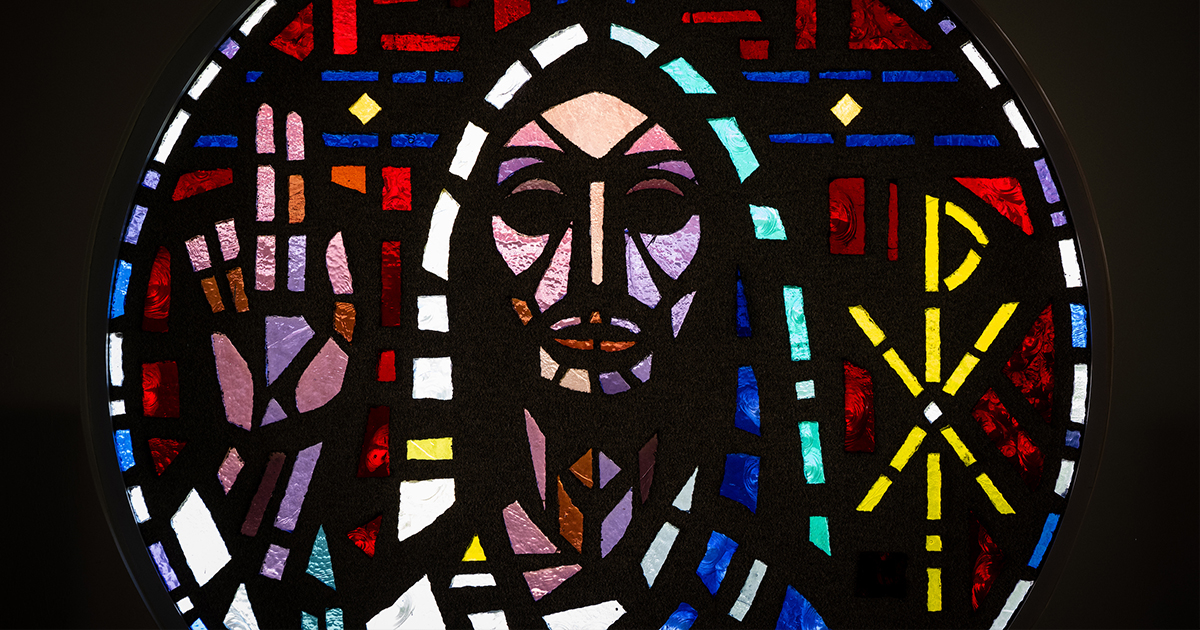
By Sarah Reinsel
“Jesus for You,” a new video series explaining the basic tenets of Christianity from a distinctly Lutheran perspective, is now available in five different languages: Farsi, Urdu, Arabic, Spanish and English.
The idea for the series originated with the Rev. Dr. Gottfried Martens, who is the pastor of Trinity Lutheran Church in Berlin-Steglitz, Germany. Trinity is part of the Independent Evangelical Lutheran Church (SELK), the Synod’s partner church in Germany. Trinity is also the largest Persian Lutheran church in Europe.
Martens saw a need among Persian immigrants in Germany for simple and concise videos explaining the basics of Christianity in Farsi.
In recent years, Europe has received millions of immigrants from Islamic countries; Iranians in particular have been open to the Gospel, and thousands of Iranians have been baptized in SELK churches. According to a statistic produced by the German government, Christianity is the official religion of 65.2% of Iranians living in Germany.
The Rev. Dr. Christian Tiews, an LCMS missionary who works with the SELK, said, “While we cannot send missionaries to Iran under the current regime, evangelistic work with Persian expatriates in Europe is ‘low hanging fruit.’ ” Tiews added that “if there is ever a regime change in Iran and the country opens itself to non-Muslim religions, there will be huge mission opportunities in that country.”
The video project is part of a larger strategy to strengthen Lutheran outreach and education efforts for Iranians in Europe and indirectly in Iran itself. Currently, Tiews and others are working to catalogue existing resources and translate new resources into Farsi; establish an internet presence where Farsi-speaking people can learn about historic Christianity and find ways to connect with local churches; train future leaders and church workers to continue this effort to minister to the Iranian Lutheran community; and build communities of Lutheran Persians.
A tremendous undertaking
As the video project began to take shape, “it very soon became apparent that these videos would be useful for other demographics as well,” said Tiews.
Writing the scripts and filming the videos, and then translating and dubbing the videos into four more languages, was a huge undertaking that took over two years to complete.
A team of pastors, deaconesses, translators, videographers and various native speakers — working all over the world, from Hamburg, Germany, to St. Louis to Islamabad, Pakistan — came together to craft the videos especially so that they would resonate with speakers of other languages.
The video scripts were first written and filmed in English, with Martens and the Rev. Dr. Arthur Just, professor of exegetical theology at Concordia Theological Seminary, Fort Wayne, as the two central speakers.
After this first phase was completed, the three video scripts were translated into other languages.
Then began the painstaking and complex work of recording voiceovers in the other languages so that they lined up, roughly, with the original speaker’s phrases and pauses and the video’s visuals.
Subtitles in the other languages were also added, no small feat considering three of these other languages have different alphabets. The videos were then reviewed and corrected one more time by fluent speakers of Farsi, Arabic, Urdu and Spanish.
Explaining the fundamentals
How does a person become right with God? Who is Jesus Christ, and why do Christians still follow His teachings some 2,000 years later?
The three-video series was designed to answer these two questions — questions that any person, from any country and from any religious background, might have.
The first video handles atonement — how does Jesus save us? The second video covers Baptism, or how Jesus cleanses us. The final video addresses the Lord’s Supper, explaining how Jesus feeds us, forgiving our sins through His body and blood.
Each video is just over 10 minutes long and is accompanied by a handout version of the script so viewers can follow along closely or reread specific parts.
Furthermore, the hope is that the videos will be able to bring the Gospel, via the internet, to hard-to-reach places like Iran, said Tiews, to introduce “innumerable new people to the glorious news of Jesus Christ and also strengthen existing Christians in their faith.”
Watch videos or learn more about the series.
Posted Sept. 16, 2024